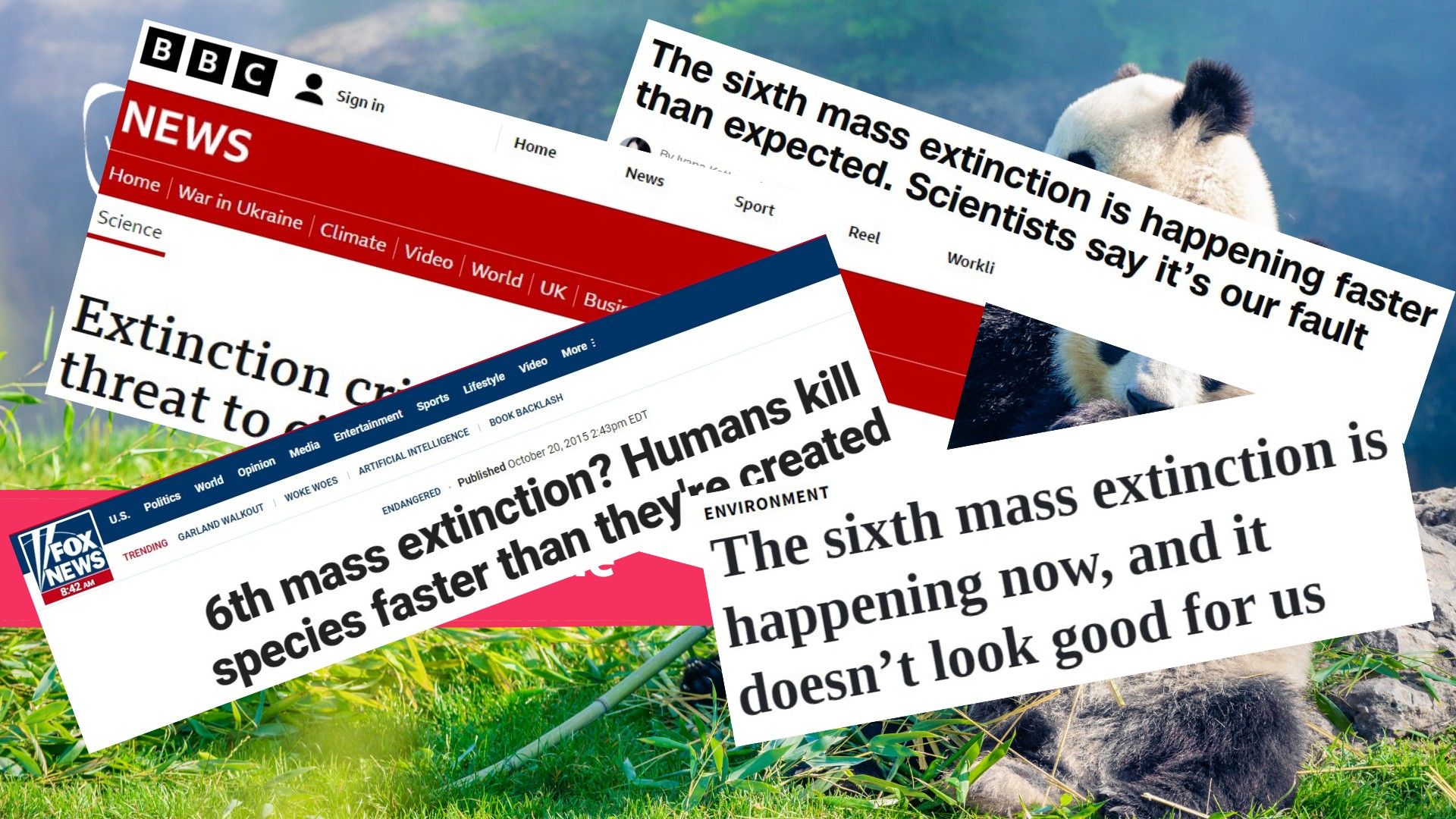
💡 Result of our investigation: Sixth mass extinction
A journalistic reflex is to think: "That sounds too good to be true." But rarely if ever the opposite: "That sounds too bad to be true." That's why we wanted to do a "too bad to be true" review.
Share this story!
Here is the result of the investigation you suggested, voted for, and financed.
 Warp NewsAnders Bolling
Warp NewsAnders Bolling
A brief background to refresh your memory:
- A journalistic reflex is to think: "That sounds too good to be true." But rarely, if ever, the opposite: "That sounds too bad to be true."
- That's why we wanted to do a "too bad to be true" investigation.
- Warp's community came up with topics, we chose three of these and let you vote. The winner, with 43 percent of the votes, was the sixth mass extinction.
- You also helped with the financing. We received about $1.000 from you, and The Progress Network contributed the other half.
- As our investigator, we chose Anders Bolling. He is an experienced and respected journalist, with over twenty years of experience as a reporter and editor, and knowledgeable about the subject.
Thank you so much for your participation and help in making this investigation happen!
Anders has done a brilliant job. The article is a massive piece of 6,700 words, with a reading time of about half an hour. He has interviewed several interesting and knowledgeable people, including perhaps the world's most famous (and charming) pessimist, Paul Ehrlich.
The article is therefore too long to insert directly into this email, but we had six hypotheses at the beginning of the work. So I'll put the hypotheses and results here.
Hypotheses and results
Most of the hypotheses were correct, but not all. The main result, however, is important to point out: There is no ongoing sixth mass extinction.
That does not mean there are no problems. Because there are indeed problems with how we treat animals and with species extinction, but possibly we have the worst problems behind us.
Hypothesis: For the past 50 years, species populations are no longer shrinking in wealthy countries. In many cases, they are increasing. Recently, populations have also stopped declining in poor countries.
- Not entirely accurate. Populations stopped shrinking only about a decade ago in most regions, but not all.
Hypothesis: What is called species extinction is almost entirely about shrinking populations.
- Mostly accurate. Media, environmental agencies, and even some researchers often describe decreased populations in terms of extinction.
Hypothesis: The extremely large number of species said to go extinct continuously comes from theoretical models of insects and even smaller organisms assumed to disappear.
- Accurate. Since Norman Myers' book The Sinking Ark from 1979, spectacular assumptions have gained attention, suggesting that tens of thousands, perhaps even more, species go extinct each year. The numbers are impossible to verify.
Hypothesis: Among larger species, few extinctions in modern times have actually been documented.
- Generally accurate. The words "few" and "modern times" need to be more clearly defined. In a geological sense, even what we see as "few" (less than one percent of all vertebrates in 500 years) is a high rate.
Hypothesis: Humans were much worse for animals and nature in the past than today.
- Accurate. (However, the hypothesis mainly applies to inhabitants of civilizations, not indigenous people.) In our opinion, this is a key reason why a sixth mass extinction will never become a reality.
Hypothesis: Many species thrive in urban environments.
- Accurate. There are numerous studies showing that many animals and plants have successfully made cities their habitats.
Feel free to discuss the results in our Facebook group for Premium Supporters. And please share the article far and wide!
 Warp NewsAnders Bolling
Warp NewsAnders Bolling
I have also written a kind of Q&A about why we did this review.
 Warp NewsMathias Sundin
Warp NewsMathias Sundin
Mathias Sundin
The Angry Optimist
By becoming a premium supporter, you help in the creation and sharing of fact-based optimistic news all over the world.
